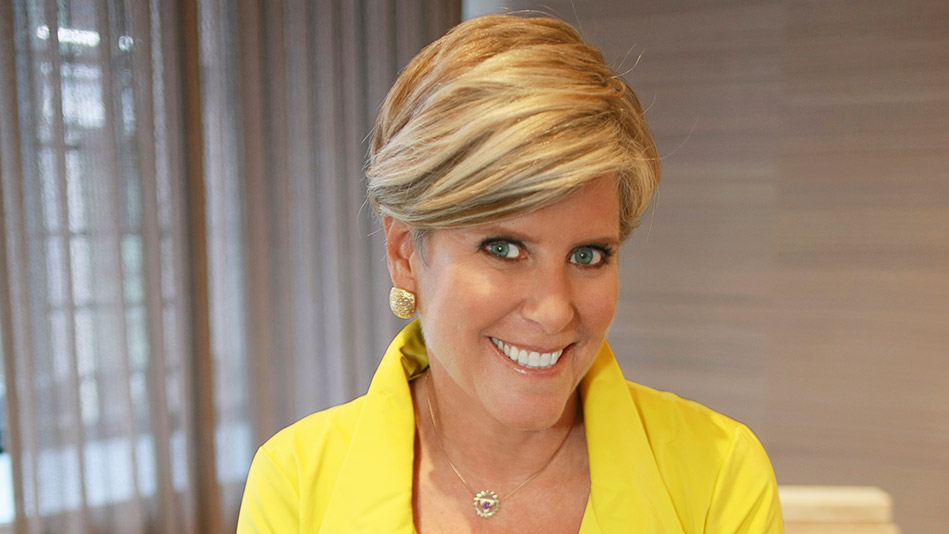Suze Orman's 5-Step Financial Action Plan
Learn how to secure your money today and establish a strong financial future.

Photo: Edwin Datoc
Step 1: Pay Off Your Credit Card Debt
Suze says the number one thing people lie about is now much credit card debt they have. But what you don't want to know can hurt you, so it's important to dig yourself out of debt for good. Just follow these three steps.
1. Line up your credit cards from the highest interest rates to the lowest.
2. Pay the minimum on every single card to stay current.
3. When the card with the highest interest rate is paid off, put the the amount you had been paying on it toward the next card in line. Keep repeating this process until each credit card has been paid off.
Step 2: Raise Your FICO Score
In today's economy, your financial character is being determined by one thing—your FICO score. Even landlords and employers are using it.
"FICO happens to stand for Fair Isaac Corporation, the company that created the credit score years ago. FICO scores go from 300 to 850," Suze says. "The lower your FICO score, the higher your interest rate. The higher your FICO score, the lower your interest rate."
Download this chart to see how your FICO score is determined.
Suze says there are three ways you can start improving your FICO score today:
1. If possible, pay more than the minimum every month on your credit cards. "If you're charging on your credit cards and all you're doing is paying the minimum, the credit cards are afraid now that you're not really being very smart with your money," Suze says. "And since you can't, it's not the FICO score that they're looking at to choose to close down your credit cards. It's the fact that you're paying just the minimum, and those are the cards that they're closing down."
2. Pay your bills on time. "Paying your credit card bills on time essentially counts for 35 percent of your FICO score," Suze says.
3. Never go over your credit limit. "That's when they start to raise your interest rates, close you down," Suze says.
Another thing to keep in mind: Suze says to never close down a credit card. "It will hurt your credit score," Suze says.
Step 3: Create a Spending Action Plan
Is your spending impulsive? How much do you buy each month that you don't really need? Reign in your spending in three steps.
1. Sit down with your expenses and separate wants and needs.
2. Circle all expenses that are wants.
3. If you have debt or no savings, eliminate the wants.
Step 4: Create a Savings Action Plan
Once your debt is paid down and your spending is under control, it's time to start saving. Here's how:
1. Save enough to cover eight months of expenses.
2. Decide how much you can save each month, then save an additional 20 percent. The key to saving, Suze says, is challenging yourself. "Decide that you can save so much every single month. Whatever that figure is that you decide you can save, I want you to stretch it. I want you to add 20 percent to it," she says. "As much as you think you can do, I'm here to tell you, you can do more. You are all more than you really know you are. And if you just stretched your abilities, you would grow into your abilities."
3. Search for the savings account with the highest interest rate. When you start saving money, Suze says to be a good shopper. Look for an FDIC-insured savings account with the highest earning interest rates you can find. "Little by little, if you take little actions, your plans will become a reality," she says.
Step 5: Create a Retirement Action Plan
It's the day most people dream about: retirement. Here are three ways to make sure you have enough:
1. Don't panic when the market goes down. Suze says the most important thing you can do in a bad economy is to stay calm—especially if you have at least 10 years until retirement. "There's a big difference between 29 and being 56," Suze says.
2. Keep investing monthly in your 401(k) or IRA. "Guess what? Your money buys more shares. The more shares you have, the more money you're going to make by the time you are your mother's age," she says.
3. If you need the money within five years, take it out of stock market. Another important idea Suze emphasizes is that any money you will need to spend—on a house, on college tuition—within the next five years must be invested conservatively. "That is not money that belongs in the stock market," she says. "It never has. It never will. The money that's in the stock market is money that you don't need. ... Because [to be in the stock market] you need time on your side so that when something like this has happens and the market goes all the way down, it [has] time to recover."



